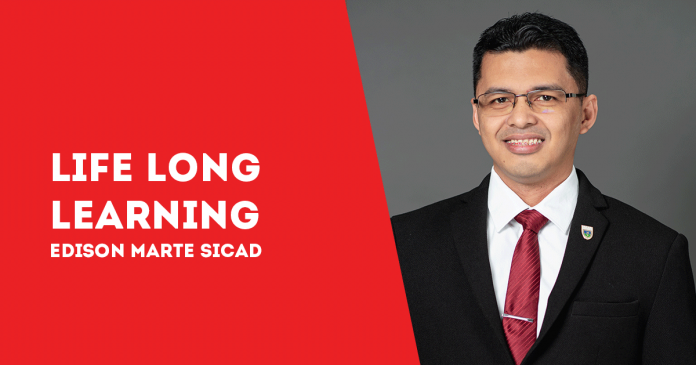
BY EDISON MARTE SICAD
“Seek first to understand, then to be understood.” -Stephen Covey
THIS IS about having an understanding heart: to continue caring and loving others despite their mistakes.
At the outset, this is not about disregarding our own mistakes. This is more of seeing personal improvement as a process: a dialogue or constructive criticism.
And when others make mistakes, or when we do not agree with someone else’s point of view, let us still offer our help not just because of empathy but as an attribute of human responsibility.
To misunderstand others (or being misunderstood) may not be acceptable sometimes. And as an expression of freedom and independence—more like an ego actually—we can be tempted to declare that we don’t need people to understand us in return.
And we don’t care if they have understood what we have conveyed.
We can agree to disagree.
There is a way of doing this: to be intellectual about the whole conversation to grasp another person’s reasoning and eventually learn from the discussion despite contradictions in definitions and intentions.
I get excited when I am in a disagreement with others. For I know there is a learning moment from such a clash of opinions or beliefs.
It is but natural to be emotionally attached to the logic of our own conclusions.
And a person who can transcend from arguing and defending one’s point of view into appreciating the diversity of human knowledge and motive, is a person who can withstand the onslaught of divisive tendencies. But this is easier said than done.
A person who can elevate the conflicts into an experiential discourse of continuous learning is a person who can see order in chaos. Such a person has strength of character: a principled man.
Professionalism in competitions
I witness such professional battle of the brains during court hearings; where both sides do not only defend the cause of their clients but also contribute to the enrichment of jurisprudence through trial techniques.
I think we can also apply this to the other aspects of our lives. To be clear, I am not referring to the use of legal knowledge in all man-made disputes. I am encouraging the seeking to understand others by listening first to their reasoning.
Professor Jordan Peterson suggests a way of doing this:
In arguing or expressing criticisms, allow first the person to explain his side. Listen intently like an impartial judge. Then, repeat to such person how you understood his arguments by discussing it back to him. After which, ask him if your discussion of his side was what he really intended, for this would mean that you have understood his point of view. Only then that you can present your own side of the issue.
Discussing conflicting views is not really about destroying the other person’s argument. It is more of building your own knowledge about the topic. The first question to be asked in such a conflict is:
Why is this person thinking this way?
Get to know the logic of his thinking. In other words, try to follow his train of thought. For we could be wrong or only partly correct.
Imbibe all experiences as a form of learning for personal development as well as for the common good.
What can I learn from this?
Be mature enough to admit that you are wrong or be humble enough to willingly learn from someone even if you have been proven right.
Synergy for a higher purpose
The practicalities of living have layers of interpretations. Meanings in expressions can also be lost in translations. This is where the ideals of learning come into the picture.
Let us appreciate the learning moments with the varied, diverse, and sometimes stressful encounters with life.
Let us allow humility and sincerity to govern our understanding of others.
Let us continue to contribute to the growth of human knowledge.
Let us learn from each other. As a form of responsibility and as a manifestation of love./PN



